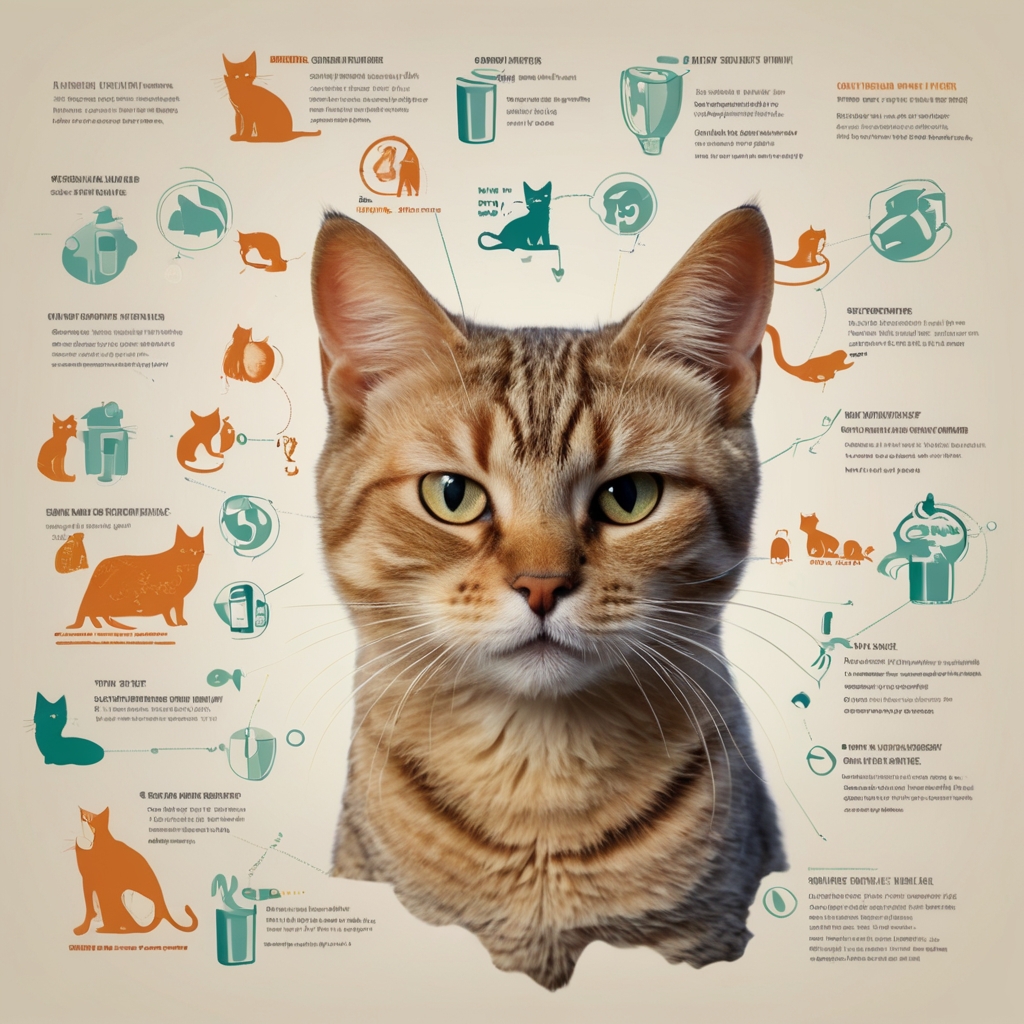
understanding why cats vomit
As a cat owner, seeing your furry friend vomiting can be worrying. While occasional vomiting may not be cause for alarm, frequent or severe episodes could indicate a deeper issue. Understanding the reasons behind your cat’s vomiting can help you provide the right care and determine when to seek veterinary assistance. In this article, we’ll dive into the common causes of vomiting in cats, how to help them, and what steps you can take to prevent it from happening in the future.
Understanding Why Cats Vomit
Vomiting in cats is not unusual. In fact, many cats will vomit from time to time as a natural reflex, often due to something they’ve eaten or an upset stomach. However, it’s important to recognize that vomiting can also be a sign of underlying health issues.
Vomiting occurs when the stomach contents are forcefully expelled through the mouth. This can happen for a variety of reasons, ranging from something as simple as a hairball to more serious conditions like infections or digestive disorders. By paying attention to the frequency and circumstances of your cat’s vomiting, you can better assess whether it’s a normal occurrence or a reason for concern.
Common Causes of Vomiting in Cats
1. Hairballs
Cats groom themselves constantly, and in the process, they swallow loose fur. Over time, this fur can accumulate in their stomach and form hairballs, which can cause vomiting. This is more common in long-haired breeds, but any cat can develop hairballs.
2. Eating Too Quickly
Some cats eat their food too fast, causing them to vomit shortly after. When they gulp down their food, they may also swallow air, which can upset their stomach and lead to regurgitation.
3. Dietary Changes
If you’ve recently switched your cat’s food, their digestive system may take time to adjust. Sudden changes in diet can lead to stomach upset and vomiting.
4. Ingesting Non-Food Items
Cats are curious creatures and may chew on or eat things they shouldn’t, such as plants, string, or small objects. These items can irritate the stomach or even cause blockages, resulting in vomiting.
5. Illnesses or Medical Conditions
Persistent vomiting may be a sign of an underlying health condition. Cats can vomit due to infections, parasites, kidney disease, liver problems, or gastrointestinal issues. If your cat is vomiting frequently, it’s important to consult a vet to rule out any serious medical concerns.
When to Worry About Cat Vomiting
While occasional vomiting is common, there are certain signs that indicate it’s time to seek veterinary care:
- Frequent vomiting: If your cat is vomiting several times a day or more than once a week, it could be a sign of a larger problem.
- Blood in vomit: Vomiting blood is never normal and requires immediate attention from a vet.
- Other symptoms: If your cat is vomiting along with other symptoms like lethargy, diarrhea, weight loss, or changes in appetite, it could signal a serious health issue.
- Chronic vomiting: If your cat has been vomiting regularly for a prolonged period, it’s important to get a proper diagnosis.
How to Prevent Vomiting in Cats
1. Slow Down Their Eating
If your cat is vomiting due to eating too quickly, try using a slow feeder or puzzle feeder. These bowls make it harder for cats to gulp down their food, encouraging them to eat at a slower pace.
2. Hairball Remedies
For cats prone to hairballs, regular grooming and hairball control products can help reduce the amount of fur they ingest. You can also find cat foods designed to reduce hairball formation.
3. Stick to a Consistent Diet
Sudden changes in your cat’s food can upset their stomach, so always transition slowly when switching to a new brand or type of food. Introduce the new food gradually over a week by mixing it with their current food.
4. Keep Hazardous Items Out of Reach
Cats may chew on plants, string, or other small objects that can cause digestive issues. Make sure your home is cat-proof by keeping harmful items out of their reach.
5. Regular Vet Check-Ups
Routine vet visits can help catch any potential health issues early. Your vet can recommend dietary changes, medications, or other treatments to help manage or prevent vomiting in your cat.
What to Do If Your Cat Is Vomiting Frequently
If your cat is vomiting frequently, it’s important to take action:
- Monitor their symptoms: Take note of how often your cat vomits, what they’re vomiting up (food, hairballs, or bile), and any other accompanying symptoms.
- Visit the vet: If the vomiting persists or is accompanied by other concerning symptoms, schedule a vet appointment. Your vet can run diagnostic tests to identify any underlying conditions.
- Follow the vet’s advice: Your vet may recommend a specific diet, medications, or other treatments to help manage your cat’s vomiting.
- Stay patient: Vomiting can take time to resolve, especially if it’s related to a chronic condition. Be patient and work with your vet to ensure your cat gets the care they need.
Conclusion
Vomiting in cats can be caused by a range of factors, from hairballs to more serious health issues. Understanding the causes and knowing when to seek help is key to keeping your feline friend healthy. By following preventative measures like slowing down their eating, keeping harmful objects out of reach, and providing consistent care, you can help reduce your cat’s chances of vomiting.
If your cat is vomiting frequently or showing other concerning symptoms, don’t hesitate to consult your veterinarian for guidance. With the right care and attention, you can help your cat feel better and avoid future tummy troubles.
